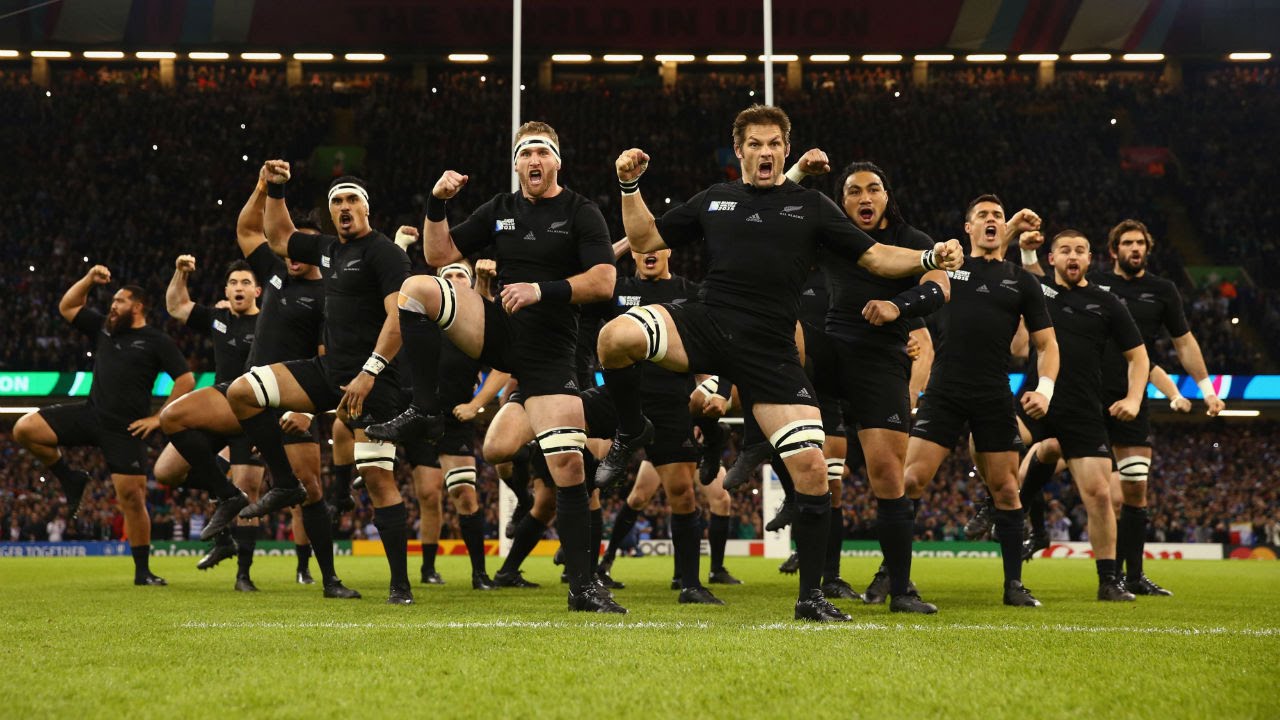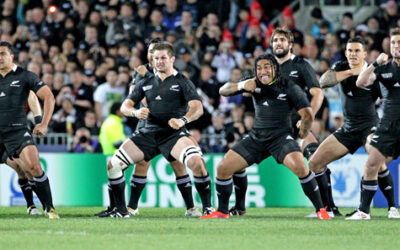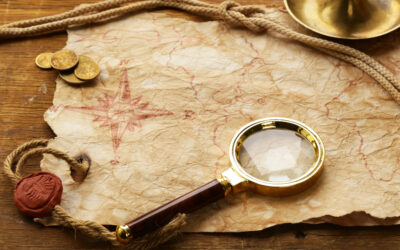Is there anything that raises the ire of certain Northern Hemisphere rugby critics and fans more than the All Blacks’ haka? Whenever the World Cup rolls around it’s always the same, tired, ignorant, and insensitive criticisms of a tradition of our game that has been around for over 100 years. It sometimes carries over to a thinly veiled racism where an ancient Maori tradition is described as a ‘war dance’.
I have my own problem with the haka but they are all about my old school curmudgeon ways more than anything else. I think only the starting 15 should perform it and the TV cameras should not be in the space between the All Blacks and the team that they are laying down the challenge to. It spoils the drama and the value but as I realise as I get older – things aren’t what they used to be back in the day, and that is often a mix of the good and the bad.
I also think that it is an advantage to the All Blacks to initiate the haka before the game kicks off. I can think of few physical motivations that would be better. But I have also seen All Blacks team too hyped up when the whistle blows to maintain the focus and dedication of of the pre-ordained game plan.
Without a doubt the haka is one of the most awe inspiring rituals in sport and whenever the All Blacks play overseas, as well at home, the crowds pay it the attention it warrants and it is part of the greater draw of what is known rather lazily as the All Blacks’ brand’. Because it is a challenge there have been many notable occasions where opposing teams have responded in fantastic ways – none better than the Irish team walking in a line to be right in the faces of the All Blacks in 1989.
I have no problem to those responses and neither do I take issue wth opposing fans trying to drown it out with their own team songs. I think it only ever raises the expectation and excitement for a game. It is strange that the English have, at times, taken issue with it when their fans sing “Swing Low, Sweet Chariot”, a traditional song created by Black American slaves – especially considering the huge role the English played in the creation of the slave trade. The Australians occasionally try to nullify the hala with their own rousing campfire song that they’ve taken up as their team song of choice – “Waltzing Matilda.”
Criticisms of the haka are nothing more than the tired focus of lazy journalists with nothing better to file for their newspapers. It creates that inevitable reaction it is meant to – when there is no way to counter the All Blacks on the field. This time it’s Irish sportswriter, Ewen McKenna wheeling out the usual lame prose – as a distraction for a looming quarter final that will be a very difficult game for the Irish.
Traditions in sport are marvellous things. They enhance the majesty and drama of the occasion. As a football fan, I am always enthralled by the singing and chanting of fans. Songs hold meaning, they symbolise the tribalism and connection of those affiliated to particular teams. They motivate players and leave opposing teams awestruck. They take simple games of skill, tactics and endurance to another level.
The same with the haka. As well as being an integral part of the culture of our first people, it has been used respectfully by our rugby team – and many other rugby teams throughout New Zealand. All we need to do now is tech Kiwi rugby fans how to sing and chant 0 that’s something that needs a great deal of work.





